Time is critical when it comes to stroke care. If you’re experiencing stroke symptoms, take immediate action and get to the emergency room. Catholic Health’s four designated stroke centers are devoted to patient safety and prepared to continue providing the highest quality care during the COVID-19 pandemic. Because treating strokes faster in a safe environment is the right way to care.
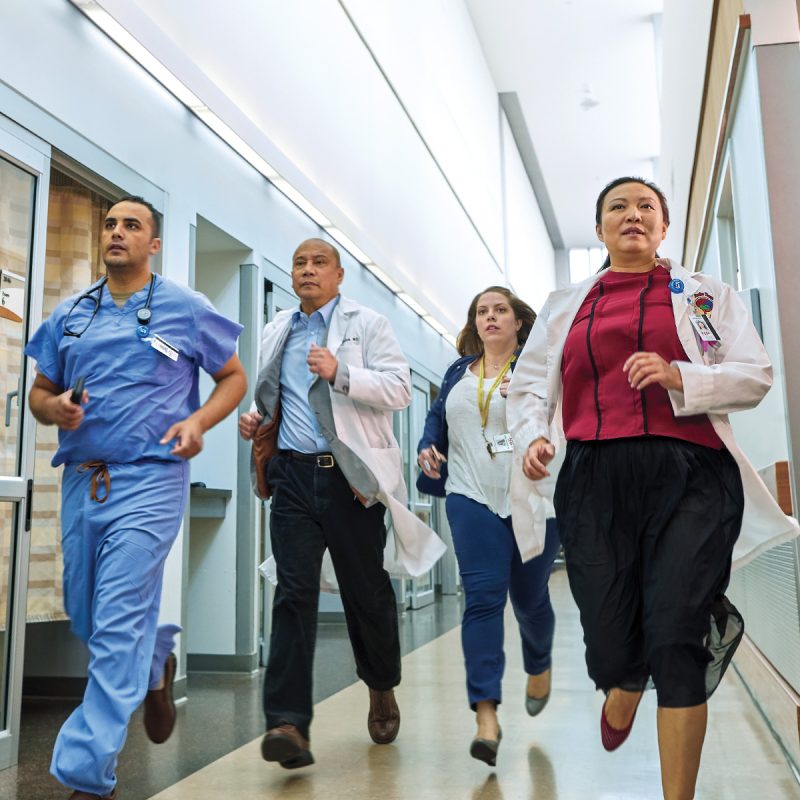
Catholic Health’s Stroke Care Network is close by – circling the region – from Lewiston to South Buffalo, including the region’s only Advanced Comprehensive Stroke Center at Mercy Hospital.
At Mercy Hospital of Buffalo, our physicians and staff with specialty training in the treatment of stroke are dedicated to treating the people in our region. Our Joint Commission certification as an Advanced Comprehensive Stroke Center means that our patients receive:
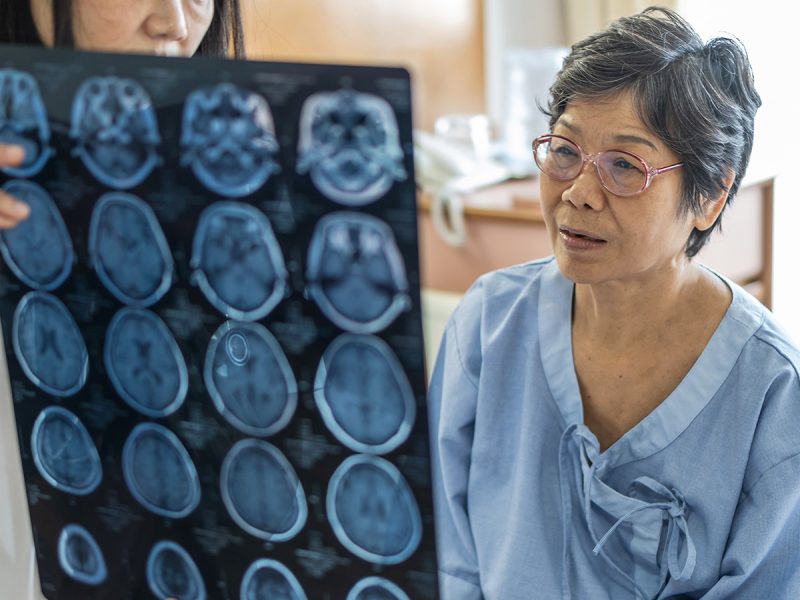
A stroke occurs when a blood vessel that carries oxygen and nutrients to the brain is either blocked by a clot (ischemic stroke) or bursts (hemorrhagic stroke).
Prior to a major stroke, people sometime experience a transient ischemic attack (TIA) in which a clot obstructs an artery for a short time and creates stroke-like symptoms. Since these “temporary” or “mini-strokes” last only minutes or hours, people often ignore them.
Go to the emergency room for any of these symptoms, even if they resolve. Follow up with your doctor to help prevent a debilitating stroke.

Mercy Hospital of Buffalo is the only hospital in Buffalo certified as an Advanced Comprehensive Stroke Center by the Joint Commission and American Heart Association/American Stroke Association, the highest stroke designation available in the nation – and the only stroke center in Buffalo to receive this honor.
Why Choose Mercy Hospital of Buffalo for stroke care?
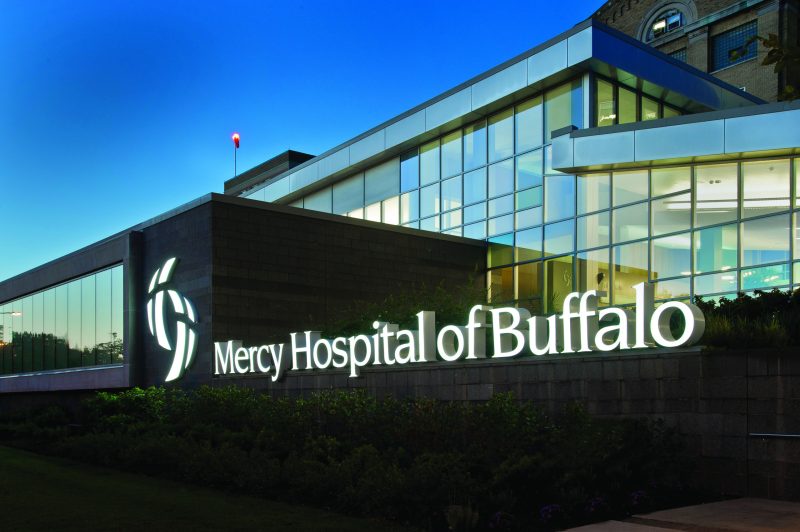
Kenmore Mercy is the only hospital in Western New York with both a Primary Stroke Center certification from the Joint Commission and a Magnet designation. As Joy MacNeil, BSN, RN, SCRN, Stroke Care at Kenmore Mercy puts it, “our stroke care is comparable to a large academic medical center, but with a personal community hospital atmosphere.”
From the minute you arrive at Kenmore Mercy with a stroke-related emergency, know that our team of physicians and specialists see themselves as part of a bigger picture. Our treatment sets patients up for better functional outcomes and a stronger recovery.
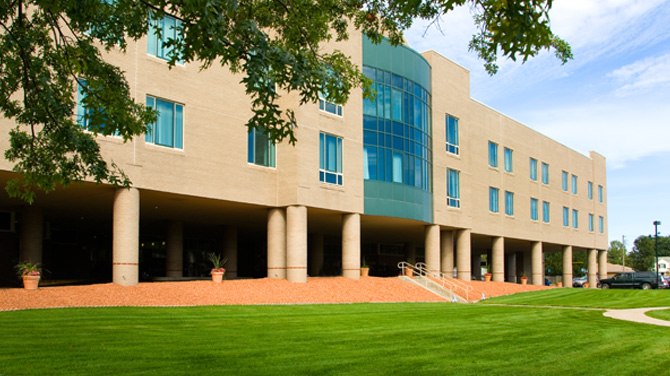
At Mount St. Mary’s Hospital, we ensure you are receiving the best in stroke care offering you:
From newly designed operating suites to outpatient rehabilitation facilities, Mount St. Mary’s Hospital is dedicated to providing world-class care to all of our patients at the area’s best stroke care facilities. Our facilities include:
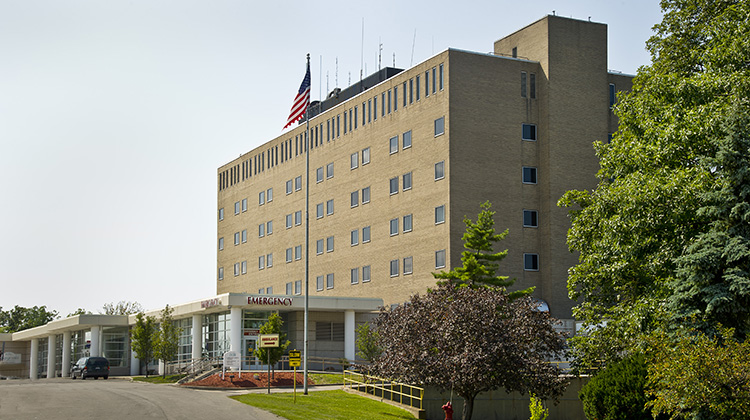
Two million brain cells die every minute during a stroke. Therefore, every second counts. If a stroke is not treated immediately, the death of brain cells will lead directly to loss of function—paralysis, loss of speech, loss of vision and even death. Our five Stroke Centers are located throughout Western New York to get you the level of care you need as quickly as possible.
If you think you are experiencing stroke symptoms should call 911 immediately. Symptoms include:
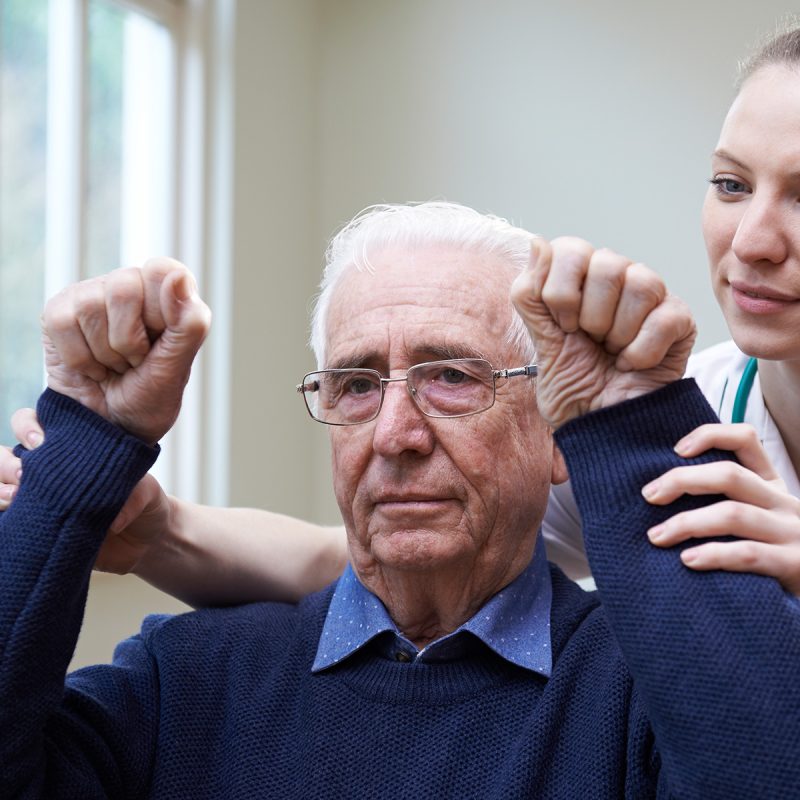
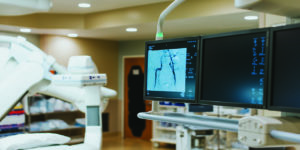
Carotid artery disease is one of the many risk factors that can lead to stroke – though it’s not necessarily the most common one....
» Read More
In the United States, someone suffers from a stroke every 40 seconds, that’s more than 795,000 cases each year. According to the CDC,...
» Read More
Strokes are one of the leading causes of long-term disability in Americans. For many primary caregivers of stroke survivors, adjusting to a...
» Read More